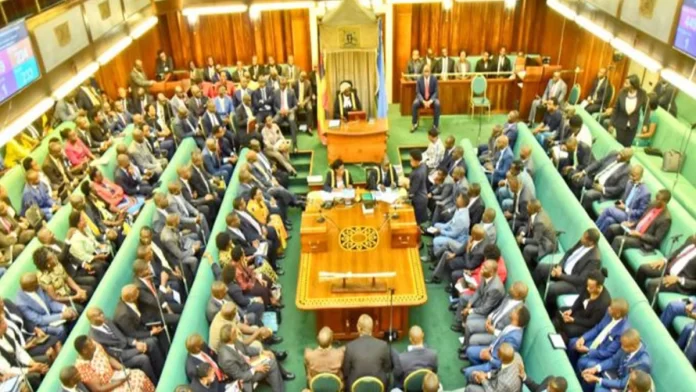The 11th parliament of Uganda is an extensive assembly of 557 members of Parliament that includes 353 directly elected members of parliament (MPS), 146 women MPs, 10 army delegates, 5 youth representatives, 5 representing the elderly, 5 for unions, 5 for people with disabilities, 28 ex-officio members, and 30 indirectly elected through special electoral colleges.
The elected MPs are divided among different political groups, with the ruling party National Resistance Movement (NRM) holding a dominant majority of 336 seats while opposition parties collectively have 109 seats, led by the National Unity Platform (NUP) with 57, followed by the Forum for Democratic Change (FDC) with 32, the Democratic Party (DP) and Uganda Peoples’ Congress (UPC) with 9 each, and the Justice Forum (JEEMA) and People’s Progressive Party (PPP) with 1 each. The remaining 74 independents largely lean toward the NRM, reinforcing its grip on power.
Despite its large size, the expansive parliament has not effectively delivered services to the common Ugandan; instead, the bloated legislature has become a burden on taxpayers, who must shoulder the costs of hefty salaries, allowances, and the purchase of vehicles for each MP. In theory, an increase in the number of legislators should lead to better service delivery, but in practice, it has resulted in inefficiencies and escalating costs without meaningful improvement at the grassroots level.
As the number of MPs continues to rise with each election, the parliamentary chambers have become overcrowded, necessitating the construction of new chambers at a substantial cost to taxpayers. Meanwhile, the time allocated for MPs to debate has been drastically reduced to less than three minutes per speaker, limiting their ability to fully represent the interests of their constituents.
The number of parliamentarians is expected to increase further with the creation of new constituencies in newly operationalized cities, adding more division-based and women MPs, further inflating the size of the legislature.
This growth primarily benefits the ruling party by bolstering its numbers, enabling it to push through its agenda. However, the opposition, too, seems more focused on securing positions for individual benefits and selfish interests rather than advocating for meaningful change or service delivery for the common Ugandan.
In fact, statistics indicate that the performance by the legislators was higher when the number was still low. The current increase has led to greater inefficiencies, including wastage, duplication, and corruption, leaving the ordinary Ugandans to continue to suffer from a lack of tangible improvements in service delivery.
Reducing the number of legislators would definitely save taxpayers’ money, which could then be redirected into essential tangible services that would benefit the common man instead of being stolen and wasted by the bloated parliament as it is currently happening.
But who will table the same proposal given that the house is full of selfish individuals whose aim is to secure their positions and satisfy their greed?
The system, as it stands, serves the powerful, not the people, and reform remains a distant dream.















